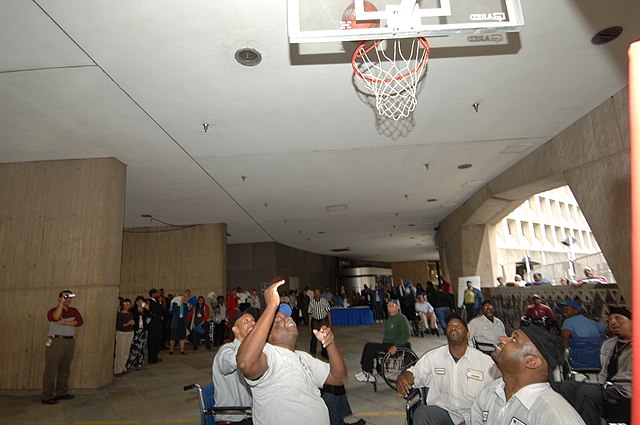Diversity within groups is a key concept in sociology and political science that refers to the degree of difference along socially significant identifying features among the members of a purposefully defined group, such as any group differences in racial or ethnic classifications, age, gender, religion, philosophy, politics, physical abilities, socioeconomic background, sexual orientation, gender identity, intelligence, physical health, mental health, genetic attributes, personality, behavior, or attractiveness.
The proportion of elections with at least one female candidate and proportion of female wins.
Convention on the Rights of Persons with Disabilities
The Convention on the Rights of Persons with Disabilities is an international human rights treaty of the United Nations intended to protect the rights and dignity of persons with disabilities. Parties to the convention are required to promote, protect, and ensure the full enjoyment of human rights by persons with disabilities and ensure that persons with disabilities enjoy full equality under the law. The Convention serves as a major catalyst in the global disability rights movement enabling a shift from viewing persons with disabilities as objects of charity, medical treatment and social protection towards viewing them as full and equal members of society, with human rights. The convention was the first U.N. human rights treaty of the twenty-first century.
HUD-sponsored wheelchair basketball game to promote disability awareness, outside HUD Headquarters - DPLA
Cienfuegos, a non-profit group teaching art to people with disabilities in Cuba.



